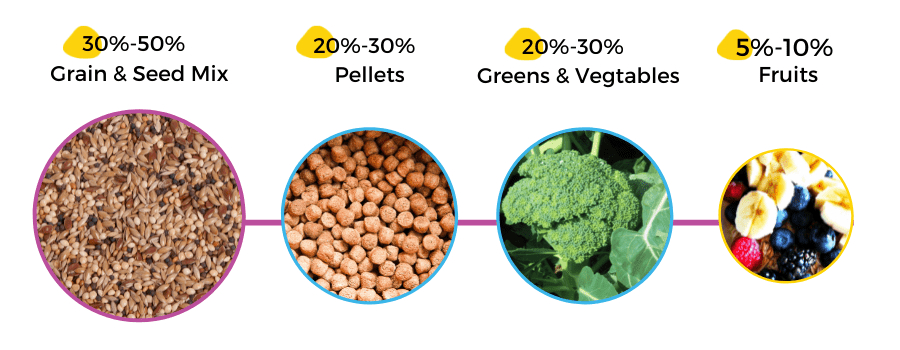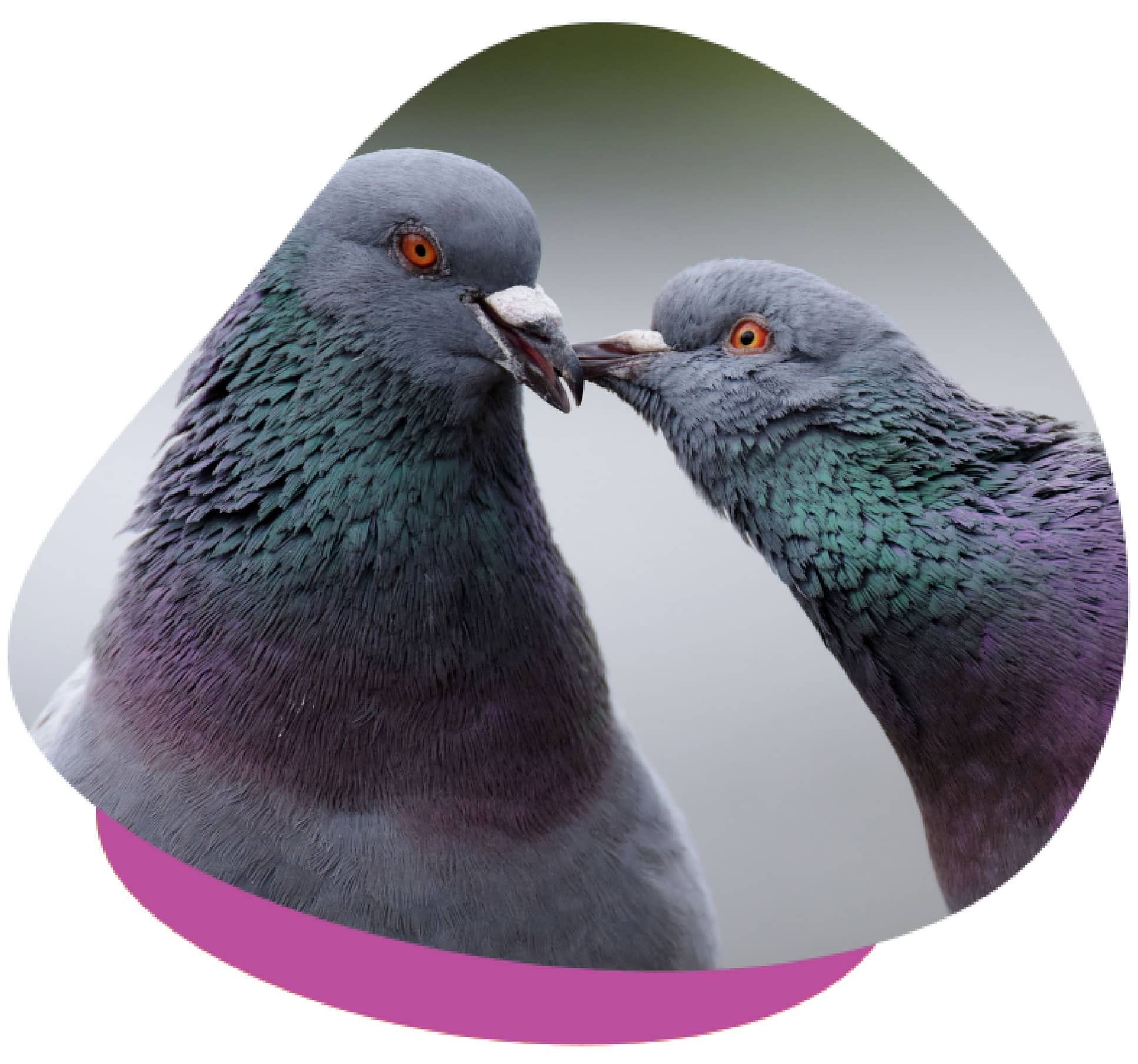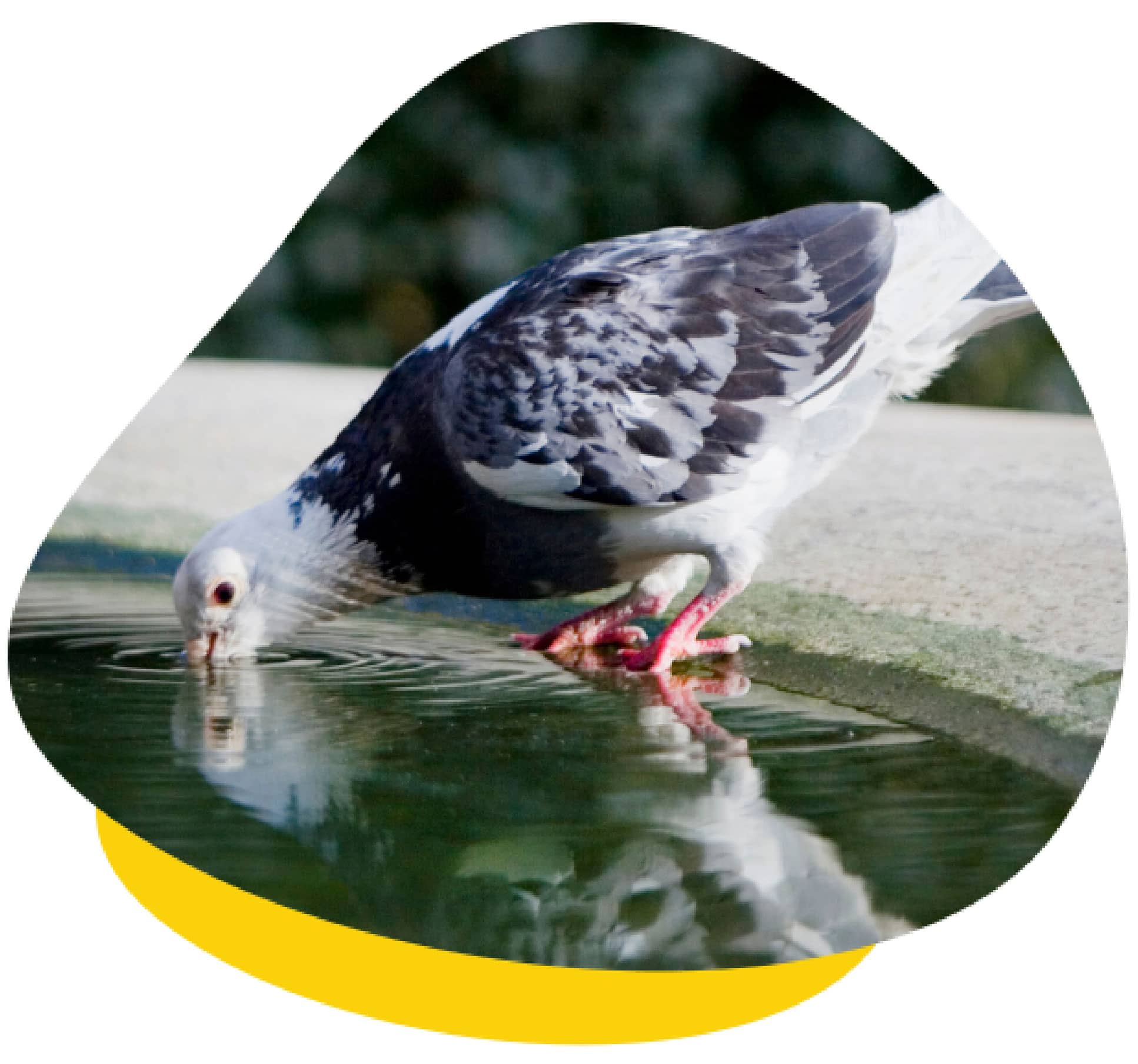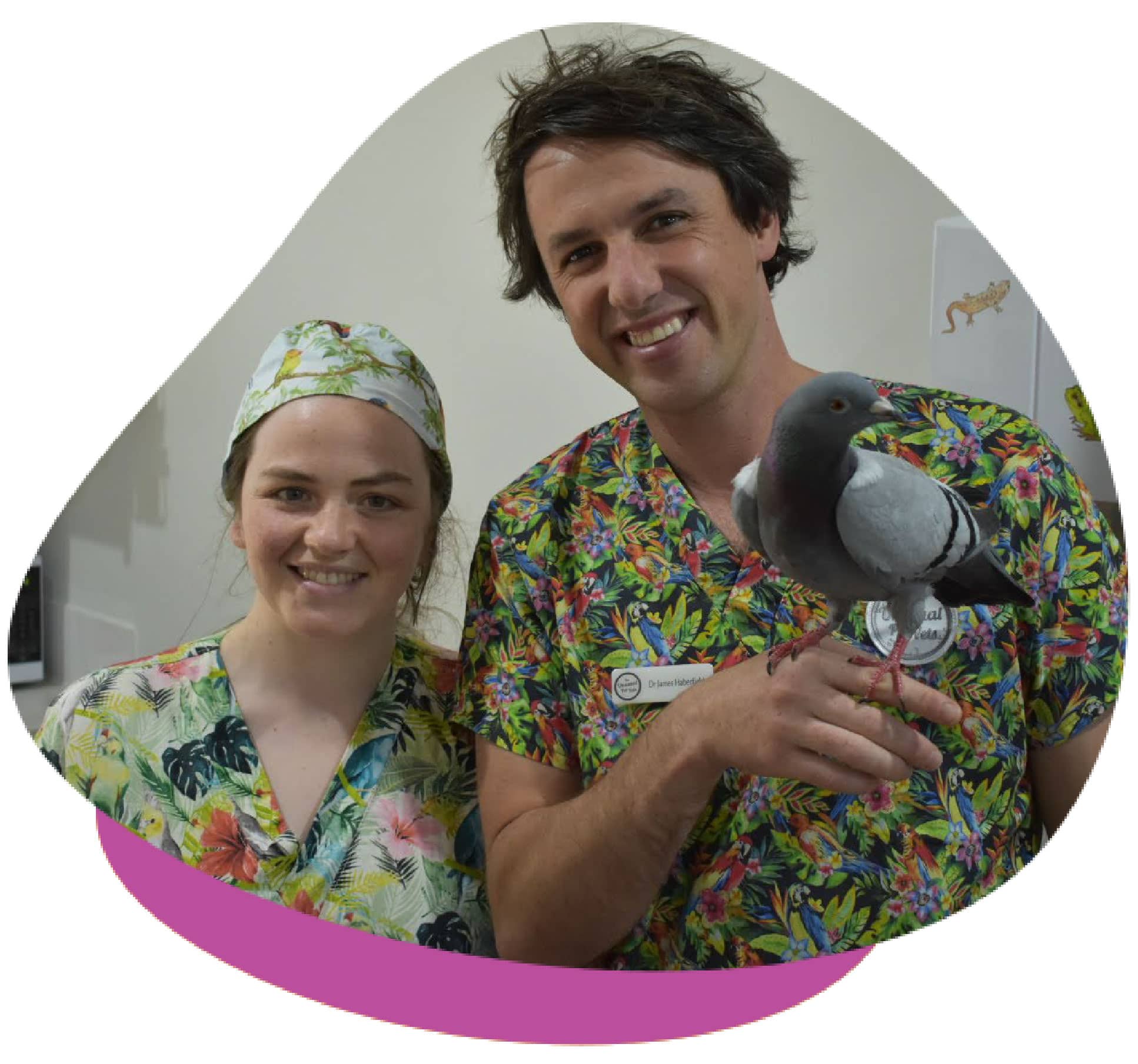Pigeons and doves can make lovely pets. They are suitable for homes that enjoy quieter birds, producing a soft and calming coo compared to our more vocal parrots.

Diet
Pigeons and doves should mostly be fed a good quality seed and grain mix. A commercial pigeon or parrot pellet should also make up a significant part of their diet. The food offered may be varied seasonally for racing and breeding pigeons, and there are commercially available diets to meet these bird’s additional needs.
You should also incorporate greens, vegetables, and a small amount of fruit into the diet. This must be finely chopped or grated as pigeons and doves cannot effectively chew their food. A small amount of fine grit may also be offered. Clean, fresh water should be available at all times. Stainless steel bowls or trays are preferred over plastic products.
- Grain and seed mix 30-50% (avoid seed mixes containing sunflower seeds)
- Pellets 20-30%
- Greens and vegetables 20-30% (recommended vegetables include bok choy, silverbeet, collard greens, endive, kale, parsley, broccoli, zucchini, capsicum, peas, corn and squash)
- Fruits 5-10% (recommended fruits include tomatoes, berries, banana, peaches, nectarines and melons)

Common toxic foods to avoid include avocado, garlic, onions and chives.
Housing
Pigeons and doves are social birds and should be housed in groups of at least two. They may be housed indoors in a large cage or outdoors in a loft or aviary.
Natural perches of varying widths and textures should be provided to exercise their feet and prevent pressure sores. Birds should be able to wrap their feet around two-thirds to three-quarters of the whole perch’s circumference. Platforms may also be provided.
It is important for outdoor housing to protect against weather extremes and prevent wild bird, rodent and predator access. They should have an area where they can hide and seek security. Where larger groups of birds are kept together, it is important they have plenty of room to prevent overcrowding. The enclosure should be well-ventilated and dry.
Maintaining good hygiene through regular cleaning, disinfection and avoiding contamination of food and water with excrement is also important to prevent health issues.

Enrichment
Pigeons enjoy bathing. Providing them with a shallow birdbath and misting them regularly is enjoyable and encourages healthy grooming. Social enrichment is provided by ensuring birds are kept in at least pairs and through regular owner interaction with friendly birds.
They also enjoy food enrichment activities, such as foraging trays where foods may be hidden between shredded paper or foliage.

Health Conditions
Pigeons and doves are prone to numerous infectious diseases. These include viruses (adenovirus, poxvirus, herpesvirus, paramyxovirus and rotavirus), bacterial infections (Salmonella spp., Chlamydia psittaci and E. coli), external parasites (mites and lice) and internal parasites (trichomonas, coccidia and intestinal worms).
Other common conditions in captivity include obesity and pododermatitis (bumblefoot), an infection on the underside of the feet.
Healthcare
We recommend 6-12 monthly health checks for your pigeon and dove pets. Recommended tests for health screening includes an estimated white blood cell count, faecal and crop testing to check for common infections and Chlamydia testing. Most of these tests are included along with a consultation, microchipping and DNA sexing in our Flystart package.
We also recommend a minimum quarantine period (strict separation from your other birds) of 2 weeks before introducing a new bird to your existing flock. Ideally, the aforementioned health screening tests would be performed before introducing the new pet to your other birds to prevent the spread of contagious diseases.
If you have any further questions about your dove or pigeon, please don’t hesitate to contact us or book an appointment online.


